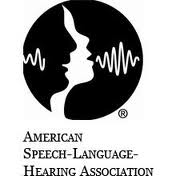By Neil DiSarno, Ph.D.
Especially in the face of change, professional health associations play a key role for their members. A case in point: the steps taken by the American Speech-Language-Hearing Association (ASHA) in anticipation of the implementation of the Affordable Care Act (ACA).
Annually, ASHA develops a public policy agenda and last year’s addressed Act-driven change. But ASHA also went many steps further. Notably it convened a health care summit that brought together a cross-section of leading players in audiology. They developed broad recommendations in three areas– reframing/rebranding of the professions; interprofessional education; and outcome measures–that promise to serve as important guideposts at this time of great transition.
Following the summit, ASHA’s Board of Directors tasked committees of audiologists, speech-language pathologists, and professionals from medicine, nursing and physical therapy with making the summit recommendations more specific and actionable in the new practice landscape brought on by the ACA.
Some committees have completed their charge while others continue to work. Here are preliminary findings from the committee that addressed the profession of audiology:
Reframing the Profession
The committee called for audiologists and ASHA to provide better public education about the role of audiologists. It said private practitioners who dispense hearing instruments and hearing systems need to alter the public perception that the practitioner’s role revolves solely around a product by promoting the services audiologists are uniquely qualified to provide—how their knowledge and skills qualify them not only to accurately assess the extent of a patient’s auditory or vestibular deficit, but also to understand the impact of the deficit on patients and families–and to develop and implement an appropriate treatment plan.

Audiology must be prepared for the challenges and opportunities ahead. Image courtesy Coursera.org
The committee added that bringing forward this key part of audiology practice will serve to have other health care professionals see the value audiologists can contribute to interprofessional practice and total patient care.
Audiology Assistants
Citing a well-established model in the Veterans Administration, the committee recommended expanding ASHA’s role setting standards for assistants in audiology care.
Noting the expanding numbers of elderly individuals expected to require hearing health services, the committee said the profession faces growing needs to use assistants to provide services, thus enabling audiologists to provide services that require higher levels of education and training.
Educating Future Audiologists
The committee raised concerns about the model used to educate audiologists. It noted that the model may be producing too few to address future demands, though it did not make specific recommendations that addressed its concerns.
Telehealth
The importance of telehealth was a major concern for the committee. They stressed the need for audiology programs to provide skills in the area of telehealth, and to have ASHA introduce and/or support legislation to remove barriers to telehealth.
Equivalency of Care
With the understanding that some services provided by otolaryngology may have an equivalent in audiology, the committee said it is considering recommending supporting research to examine evidence of equivalency of care (e.g., audiology vs. otolaryngology).
Prevention/Interventional Audiology
Consumer education regarding hearing loss must begin in the pre-school years and extend throughout the life-span. Noise-induced hearing loss is entirely preventable. Audiologists need to be recognized as THE voice for hearing loss prevention.
Given that hearing loss in the elderly often exists with other co-morbid conditions (cognitive decline, depression), the committee agreed on the need to expand audiology core competencies to include interventional audiology{{1}}[[1]]Taylor & Tysoe (2013) The Hearing Review, Vol 20, No 12, November 2013 pp.16-26.[[1]]. Interventional medicine focuses on providing patient prevention, early detection, and non-invasive alternatives to treatment particularly as they relate to chronic health care conditions such as heart disease and diabetes (see Dr. Brian Taylor’s discussion of Interventional Audiology).
Interprofessional Education (IPE)
The committee said audiologists must understand the services provided by other health care providers in order to work in a system of interprofessional practice (IPP). The converse is just as imperative– other professions need to understand how the services of audiologists will best serve patients.
IPE models are being implemented in colleges of health and human services nationwide and audiology programs need to be involved. They recommended establishing a committee to develop specific actions that address education and core competencies of interprofessional education related to reimbursement models for students and members. Possibly, other recommendations will include providing continuing education to expand IPE/IPP offerings, plus a research agenda to assess the effectiveness of IPE.
Outcome Measures
Finally in the area of outcome measurement, the committee recommended these steps:
- Establish an Ad Hoc Committee on Audiology Outcomes Measurement for one year that is charged with developing recommendations as to how the ASHA can help to meet the needs for outcomes data in audiology
- Determine what data are needed, by whom, and for what purposes; also determine how it will be used
- Determine the appropriate role for ASHA
- Spell out the ramifications of failing to act
- Prioritize the multiple data collection efforts within audiology, assuming they are needed
Of course, it remains to be seen what comes of these recommendations. Still, it’s clear that considerable collaborative thought and action is being taken to ensure that the future is audiology-friendly. And that alone should be reassuring and inspiring for us all.
Neil J. DiSarno, PhD, CCC-A is Chief Staff Officer for Audiology for the American Speech-Language-Hearing Association (ASHA), Rockville, MD. ASHA is the national professional, scientific, and credentialing association for more than 150,000 audiologists, speech-language pathologists, and speech, language, and hearing scientists.








